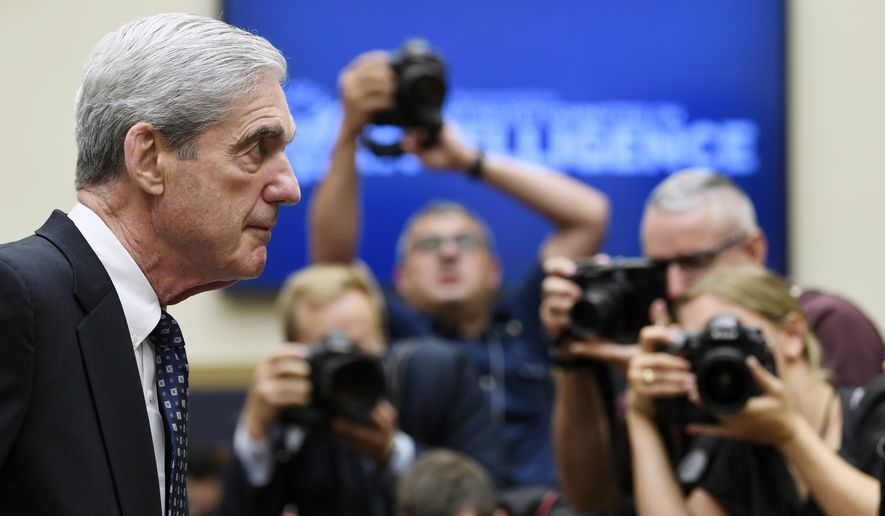A judge ruled Monday that the Department of Justice does not have to release the second part of a memo cited by former Attorney General William P. Barr in the decision to forgo charging then-President Trump with obstruction.
District Judge Amy Berman Jackson granted the DOJ’s request to temporarily pause her order requiring the release of the entire memo, which argues there was insufficient evidence to prosecute Mr. Trump with obstructing the Russia probe.
The first part of the memo was already made public, but the judge wrote in a 9-page ruling that the Department of Justice needed time to appeal her order, because, “without a stay, the battle would be lost before it begins.
“While there may be some additional public benefit in revealing the contents of Section II, the Court will not deny the Department the opportunity to challenge its ruling in order to advance that interest at this time,” the ruling states.
The decision stems from a lawsuit filed in the U.S. District Court in Washington, D.C. by Citizens for Responsibility and Ethics in Washington, a government watchdog that wants the full memo released.
The memo was written by the Office of Legal Counsel in 2019 after then-special counsel Robert Mueller released his report into whether Mr. Trump obstructed justice in the investigation of Russian interference in the 2016 presidential election.
Mr. Barr reportedly requested the OLC compile a legal opinion on the matter after Mr. Mueller refused to make a “traditional prosecutorial judgment” as to whether Mr. Trump should be charged.
In the Monday ruling, Judge Jackson criticized the DOJ’s characterization of the memo as justification for Mr. Barr’s decision to clear Mr. Trump of any wrongdoing.
“DOJ suggested that it was the Barr Memo that prompted the Attorney General to speak, when it appears that the decision to speak prompted the Barr Memo,” the judge wrote.
Judge Jackson also pushed back on the agency’s assertion that the memo is protected by deliberative process and attorney-client privileges.
“The Court found — given the unique circumstances surrounding the drafting of the Barr Memo, including the timing and joint nature of its creation, and the unique issues presented by DOJ’s pleadings, including the inconsistencies between the declarations and the memo itself — that DOJ failed to meet its burden to establish that the record was protected under the established law governing the privileges it asserted,” Judge Jackson wrote.
• Emily Zantow can be reached at ezantow@washingtontimes.com.




Please read our comment policy before commenting.